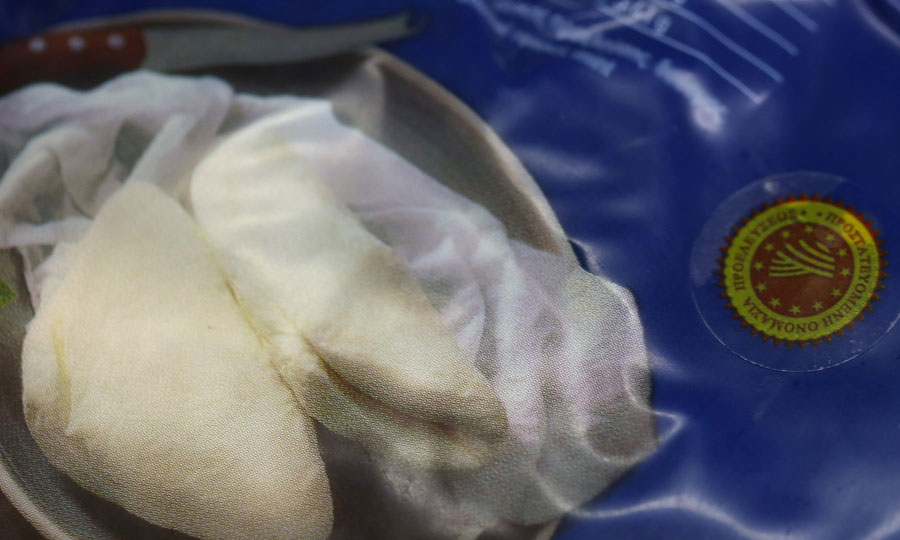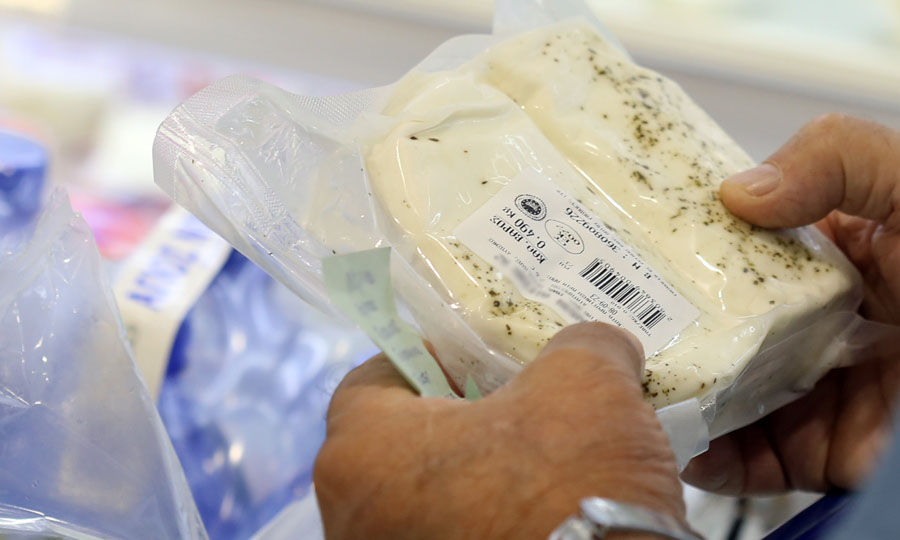
As of today, inspectors from the Ministry of Agriculture have started inspections in supermarkets and store refrigerators to remove non-PDO branded halloumi products. However, as Agriculture Minister Costas Kadis has stated, enough time has already been given to adapt and implement the legislation, so no new deadline for compliance will be given. However, it appears that at least on the first day of inspections, in cases where a breach of the legislation is detected, products will be removed and recommendations will be made. In stage 2, based on the Ministry's warning to businesses selling the product, those who do not comply may be taken to court.
As the president of the Association of Hypermarkets Andreas Hatziadamos said to "K", the previous stocks have been removed, the necessary time was given and even at the last minute the right handling was done so that the hypermarkets and stores can adapt.
halloumi bearing the PDO label is more expensive at around 1-2 euros per kilo compared to its selling price when it was a non-certified product...the price is around EUR 15 per kilo.
Already since 1 September, a number of supermarkets have stopped receiving non-compliant stocks and recommendations have been made to the receiving managers not to accept any halloumi products other than those bearing the PDO mark. It is worth noting that more than 50, including the large cheese dairies, have been approved by Bureau Veritas.

Cypriot cheese
At the same time, products bearing the Cypriot cheese label continue to be marketed. This is Cypriot Light cheese, which, as it is lower in fat, does not meet the PDO specifications and cannot be marketed under the name 'Halloumi'. The question is whether, apart from Cypriot light cheese, we will see in the near future a halloumi product on the market which is outside the specifications of the majority of cheese dairies. "It is good that this continues and that it is done in an organized manner so that there is a choice for the consumer," Hajiadamos commented. Information given to "K" that currently, producers will focus on PDO production. The question, however, is how the market reacts to the new product.

Demand, so far, remains stable for PDO halloumi, as the head of the retail trade association Marios Antoniou pointed out. He noted that it is a staple product for most households, so no change is expected in the extent to which consumers will now choose it, even with the increased price.
It is recalled that halloumi bearing the PDO label is more expensive at around 1-2 euros per kilo compared to its selling price when it was a non-certified product. At present, the price of the product on the market is around EUR 15 per kilo.
[This article was translated from its Greek original]































